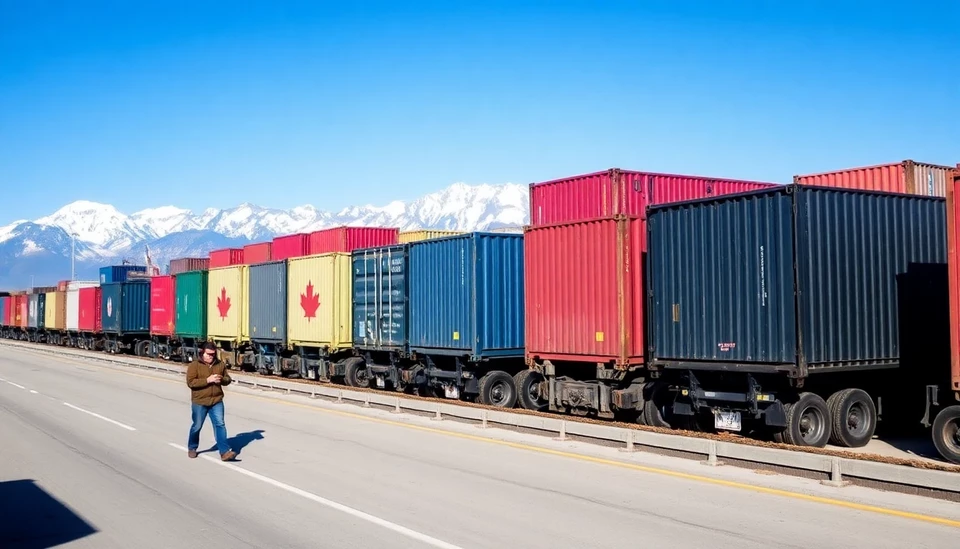
In a chilling forecast for the Canadian economy, analysts are warning that an escalating tariff war may soon push the country into a recession. The prospect of increased trade tensions, particularly with the United States, has created a wave of uncertainty among markets and consumers alike. As businesses brace for the potential fallout, the implications of these trade disputes are becoming more evident.
The Canadian economy, significantly intertwined with its southern neighbor, has historically been vulnerable to shifts in trade policy. With looming tariffs and the possibility of actions retaliatory in nature, experts anticipate that Canada's GDP could take a substantial hit. A recent analysis suggests that should these tariffs be enacted, they could lead to a decline in economic activity by as much as two percent within the next year.
Driving this concern is the already fragile state of global markets, strained by past trade agreements and ongoing disputes. The heavy reliance of Canadian exports on the U.S. market intensifies the risks associated with any trade conflict. Industries such as agriculture, manufacturing, and tech may find themselves particularly hard hit, given their dependence on American consumers and businesses.
The repercussions are not just confined to corporate profit margins; experts fear an increase in unemployment rates could follow suit. Economists predict that companies may begin to lay off workers to offset rising costs related to tariffs. This potential rise in unemployment could further stagnate consumer spending, creating a vicious cycle that drags the Canadian economy downwards.
In addition to affecting businesses, the current climate of uncertainty is likely to dampen consumer confidence. With many Canadians already feeling the pinch of inflation, any further economic instability could lead to reduced purchasing power. Data indicates that consumer sentiment has been declining, with individuals becoming increasingly cautious about large expenditures and investments.
As the situation evolves, policymakers are urged to evaluate their strategies carefully. While some advocate for protective measures to shield Canadian industries, others caution that aggressive responses might exacerbate the economic downturn. Striking a balance between preserving jobs and fostering trade relations will be paramount in the coming months.
In glimpse of the broader context, Canada is not the only nation feeling the heat of potential trade wars. Globally, economies are grappling with the shifting dynamics of trade, with nations reassessing their strategies to remain competitive amidst rising protectionism. However, Canada’s unique position as a trading partner to the U.S. means that its outcomes will likely resonate differently than other countries.
As trade relations continue to evolve, many Canadians are left questioning how to prepare for what could be a turbulent road ahead. The timing couldn’t be more critical for businesses and families as they navigate their financial futures amidst increasing uncertainty and potential upheaval.
In conclusion, the looming tariff war presents a significant threat to the Canadian economy, prompting widespread concern among economists, businesses, and consumers. The culmination of these factors could not only lead to a recession but also reshape Canada’s economic landscape for years to come.
#CanadaRecession #TariffWar #EconomicImpact #TradeTensions #ConsumerConfidence #BusinessUncertainty
Author: Laura Mitchell




